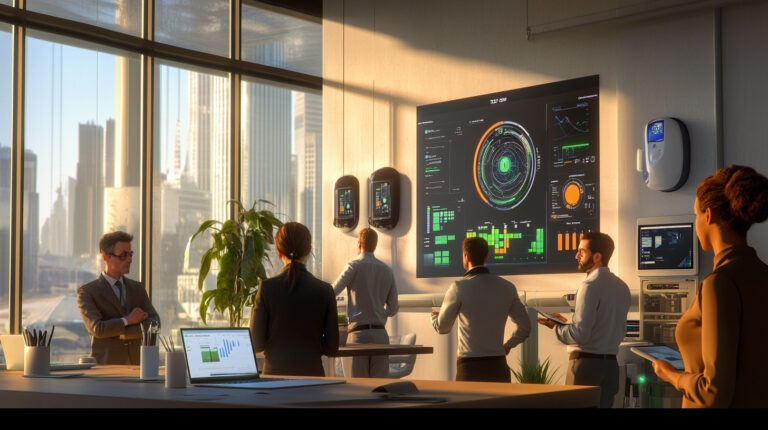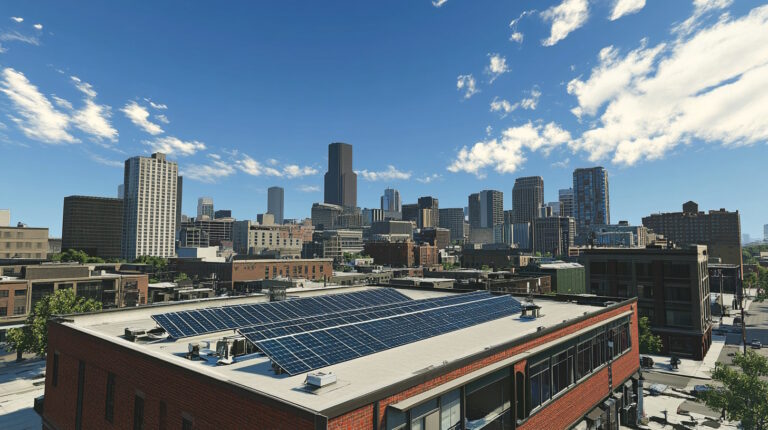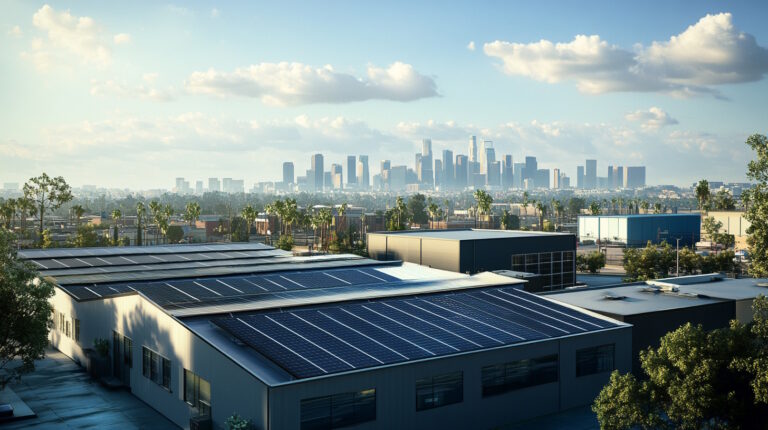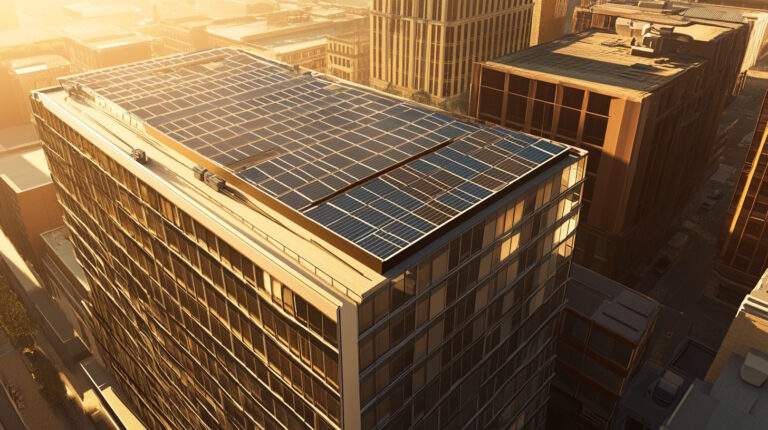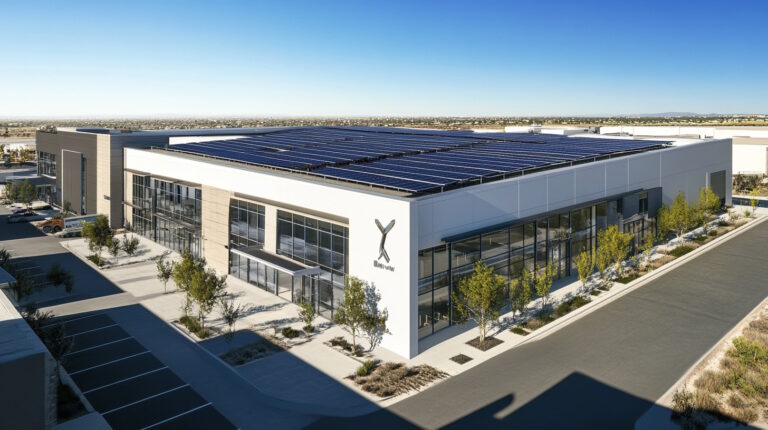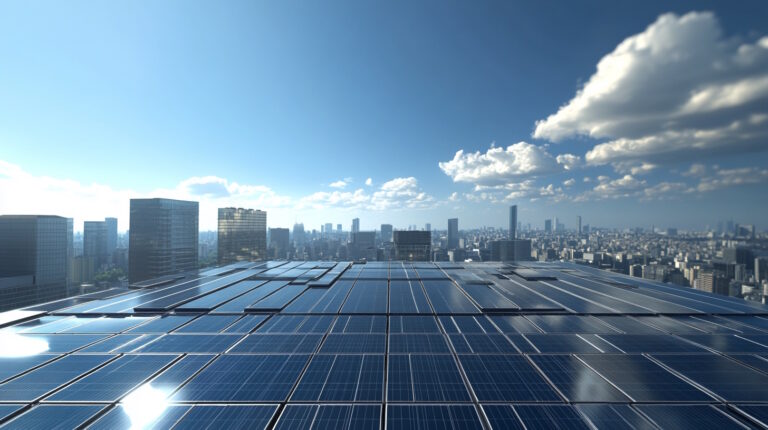Article Insights
- Discover the key factors influencing commercial solar installation costs and how they impact your bottom line.
- Learn about the breakdown of costs associated with solar systems, including equipment and installation.
- Explore various commercial solar financing options that can make solar energy more accessible for your business.
- Understand the long-term financial benefits of investing in solar energy, including savings and incentives.
As a commercial property owner, the decision to invest in solar energy is not just about reducing your carbon footprint; it’s also about understanding the financial implications. With the right knowledge, you can navigate the complexities of commercial solar system costs to maximize your investment.
This article will guide you through the essential components of solar costs, financing options, and long-term benefits to help you make informed decisions.
Unlocking the True Cost of Solar
The adoption of solar energy in commercial properties has become increasingly popular, driven by environmental concerns and the potential for significant cost savings. However, one of the primary considerations for business owners contemplating a solar installation is the associated costs.
Understanding the various elements that contribute to commercial solar installation costs is crucial for making a sound investment.
This article will delve into the factors influencing these costs, provide a detailed breakdown, and explore financing options that can help offset the initial investment.
Factors Influencing Commercial Solar Costs
The price of a commercial solar system can vary widely based on several factors. One of the most significant considerations is the size of the installation.
Larger systems typically benefit from economies of scale, resulting in lower costs per watt. The type of solar technology chosen also plays a critical role. For instance, high-efficiency solar panels may have a higher upfront cost but can yield more energy over their lifespan.
Labor and installation costs are another critical factor. These expenses can vary depending on your location and the complexity of the installation.
Additionally, permitting and inspection fees can add to the total costs. It’s essential for commercial property owners to consult with solar providers to obtain accurate estimates tailored to their specific circumstances.
To visualize the differences in costs, consider a graphic comparing the costs of different types of solar systems—rooftop installations, ground-mounted systems, and solar carports. This can help business owners understand which option might be the most economical for their properties.
Breakdown of Costs
A clear understanding of the breakdown of costs associated with commercial solar systems is essential for budget planning. Typically, the primary components of the overall cost include equipment costs, installation costs, and ongoing maintenance expenses.
Equipment costs encompass solar panels, inverters, and, if applicable, battery storage systems. The quality and brand of the equipment chosen can significantly impact these costs.
Installation costs, which include labor and any necessary structural modifications, can vary based on the complexity of the project.
On average, business owners can expect to pay between $2.50 and $3.50 per watt for a complete solar installation. This translates to a total cost of $25,000 to $35,000 for a 10 kW system, although prices may fluctuate depending on specific circumstances.
Additionally, ongoing maintenance costs should not be overlooked. While solar systems generally require minimal maintenance, routine inspections and cleaning can ensure optimal performance, which is vital for achieving the best return on investment (ROI).
Financing Options for Commercial Solar
Financing plays a crucial role in making solar energy accessible for many businesses. Understanding the various commercial solar financing options available can help property owners choose the best path for their needs. Business owners can consider several financing methods:
- Cash Purchases: Paying upfront allows you to avoid financing costs and take advantage of incentives, but it may require significant capital.
- Solar Loans: Many financial institutions offer loans specifically for solar installations, allowing business owners to spread the cost over time while still benefiting from energy savings.
- Power Purchase Agreements (PPAs): Under a PPA, a third party finances the solar system, and the business agrees to purchase the generated energy at a fixed rate, typically lower than their local utility rate. Learn more about Commercial Solar PPAs.
- Leases: Similar to a PPA, a lease allows businesses to use solar energy without a large upfront payment, although it may come with other restrictions compared to ownership.
Each option has its advantages and disadvantages, and property owners should carefully evaluate which option aligns best with their financial strategy.
Incentives and Rebates
Another important aspect of reducing the overall cost of commercial solar systems is understanding the available incentives and rebates.
The Federal Investment Tax Credit (ITC) allows businesses to deduct a significant percentage of their solar installation costs from their federal taxes. This incentive has been a driving force in the growth of commercial solar.
In addition to federal incentives, many states and local governments offer their own rebates and tax credits for solar installations.
Renewable energy certificates (RECs) can also provide an additional revenue stream for businesses that produce solar energy.
Consider including a chart that summarizes federal and state incentives by region. This will provide a quick reference for property owners to understand the potential financial benefits available in their areas.
Long-Term Financial Benefits
Investing in solar energy offers numerous long-term financial benefits. The most immediate advantage is the reduction in energy bills.
Businesses that generate their own electricity can significantly decrease their reliance on grid power, leading to substantial savings over time.
Moreover, a solar installation can increase property value. Properties equipped with solar systems are often more attractive to potential buyers or tenants, as they represent lower utility costs and a commitment to sustainability.
In addition, businesses can leverage their investment in solar as a marketing advantage. Many consumers prefer to support companies that demonstrate environmental responsibility, and showcasing a commitment to renewable energy can enhance brand reputation and customer loyalty.
Case studies indicate that businesses that invest in solar can recoup their initial investment within five to seven years, making solar not only a sustainable choice but also a smart financial one.
Solar: A Smart Investment for Your Business
Understanding commercial solar system costs is essential for any business owner considering solar energy. By evaluating the factors influencing costs, exploring financing options, and taking advantage of available incentives, property owners can make informed decisions that align with their financial goals.
The long-term benefits of investing in solar—reduced energy bills, increased property value, and enhanced brand reputation—demonstrate that solar energy is not just an environmental choice but a strategic business investment.
If you’re ready to explore how solar can benefit your commercial property, now is the time to start the conversation with Green Current Advisors.


